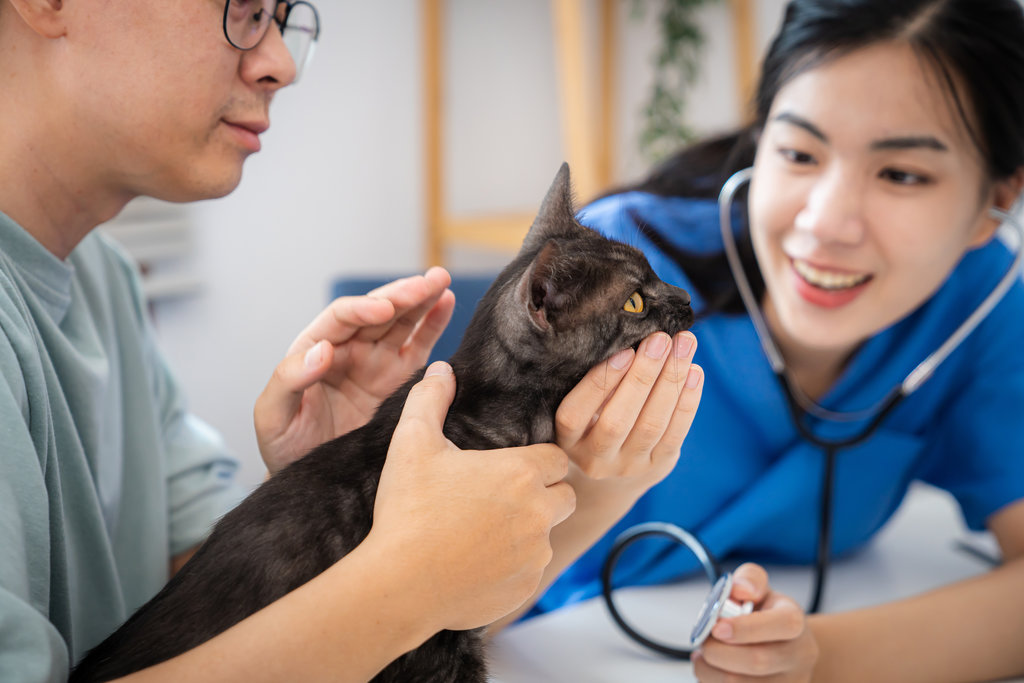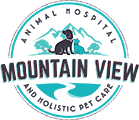Many pet parents are surprised to learn their homes contain several environmental toxins that can seriously harm their beloved companions. From common cleaning products to seemingly innocent plants, these hidden dangers lurk in places you might never expect, posing real threats to your pet’s health and well-being.
At Mountain View Animal Hospital & Holistic Pet Care, we understand creating a safe, happy environment for your pet involves more than just removing obvious hazards. Our intergrative services approach focuses on prevention and treating the whole animal, which includes helping you identify and eliminate environmental toxins that could compromise your pet’s health.
Understanding Environmental Toxins in Your Home
Environmental toxins are substances that can cause harm to your pet’s body when they are inhaled, ingested, or absorbed through the skin. These toxins can build up over time, leading to chronic health issues, or they can cause immediate poisoning symptoms. What makes these dangers particularly concerning is that many are found in everyday household items that seem completely harmless. Environmental toxins can, unfortunately, impact all pets, regardless of size or age.
The good news is that once you know what to look for, you can take simple steps to protect your pet from these hidden dangers. Creating a toxin-free environment doesn’t require a complete household overhaul – just awareness and a few strategic changes.
Common Household Toxins You Should Know About
Understanding the specific dangers in your home helps you make informed decisions about your pet’s safety and well-being.
Cleaning Products and Chemicals
Many everyday cleaning products contain substances that can be harmful to pets. Bleach, ammonia, and phenol-based cleaners can cause respiratory irritation, skin burns, and digestive upset if your pet comes into contact with them. Even after surfaces dry, residue may remain that pets can lick or absorb through their paw pads.
Floor cleaners pose a particular risk since pets walk on treated surfaces and then groom their paws. Choose pet-safe alternatives or ensure treated areas are completely dry and well-ventilated before allowing your pet to access them.
Food and Kitchen Hazards
Your kitchen likely contains several items that are toxic to pets. Chocolate, grapes, raisins, onions, garlic, and artificial sweeteners like xylitol can cause serious health problems ranging from digestive upset to organ failure.
Coffee grounds and tea bags present additional risks, as caffeine is toxic to pets. Even small amounts can cause restlessness, rapid heart rate, and tremors. Store these items securely and clean up spills immediately.
Plants and Garden Products
Many common houseplants and flowers are harmful to pets. Lilies are especially dangerous for cats and can cause kidney failure even from small exposures. Sago palms, azaleas, and oleander are also highly toxic to both cats and dogs.
Fertilizers, pesticides, and herbicides used in gardens can be toxic to pets that walk through treated areas or consume plants that have been treated. Organic doesn’t always mean safe – some organic products can still be harmful to pets.
Personal Care and Medications
Essential oils, while beneficial for humans, can be toxic to pets, especially cats. Tea tree oil, eucalyptus, and citrus oils can cause skin irritation, respiratory issues, and even liver damage in pets.
Medications intended for humans or other pets should never be shared. Many common over-the-counter meds like acetaminophen and ibuprofen are toxic to pets and can lead to severe organ damage. According to the ASPCA Animal Poison Control Center, over-the-counter medications alone account for 16.5% of all pet poisoning exposures.
Creating a Safer Environment for Your Pet
Start by conducting a room-by-room assessment of your home. Store all cleaning products, medications, and chemicals in cabinets with secure latches to prevent unauthorized access. When possible, choose pet-safe alternatives for cleaning and pest control.
Read labels carefully and research any products you’re unsure about. If a product warns against use around children, it’s likely not safe for pets either. Many companies now offer pet-safe versions of everyday household products.
Consider your pet’s behavior when pet-proofing your home. Dogs who chew everything will need different precautions than cats who climb to high shelves. Puppies and kittens are particularly curious and may investigate items that older pets would ignore.
Keep emergency contact information readily available, including your veterinarian’s number and the ASPCA Poison Control Center at (888) 426-4435. Swift action can make a major difference in cases of accidental exposure. Call the poison control center immediately if you suspect ingestion of a poisonous substance. A consultation fee may apply.
Signs Your Pet May Have Been Exposed to Toxins
Watch for changes in your pet’s behavior, appetite, or energy levels. Vomiting, diarrhea, excessive drooling, difficulty breathing, and lethargy can all indicate toxic exposure. Neurological symptoms like tremors, seizures, or loss of coordination require immediate veterinary attention.
Some toxic exposures cause delayed symptoms that may not appear for hours or even days. If you suspect your pet has been exposed to a harmful substance, don’t wait for symptoms to develop; contact your veterinarian immediately.
Skin irritation, excessive scratching, or unusual odors on your pet’s fur or breath can also indicate exposure to environmental toxins. These symptoms may seem minor, but could signal more serious internal effects.
How We Can Help Protect Your Pet’s Health
At Mountain View Animal Hospital & Holistic Pet Care, we take an integrative approach to pet health that includes helping you identify and eliminate environmental hazards in your home. Our team can provide guidance and education on creating a safer environment while supporting your pet’s natural detoxification processes. Our Fear-Free, Feline-Friendly approach ensures your pet receives comfortable care when they need evaluation or treatment for potential toxic exposure, prioritizing their emotional well-being alongside their physical health.
If you’re concerned about environmental toxins in your home or want to learn more about protecting your pet’s health, we encourage you to contact us to schedule a consultation. As an AAHA-accredited hospital, we maintain the highest standards of care while providing the personalized attention your pet deserves. You can reach us at (775) 853-6900 to discuss your pet’s specific needs and learn how our holistic approach can help them live their healthiest life.












Leave A Comment